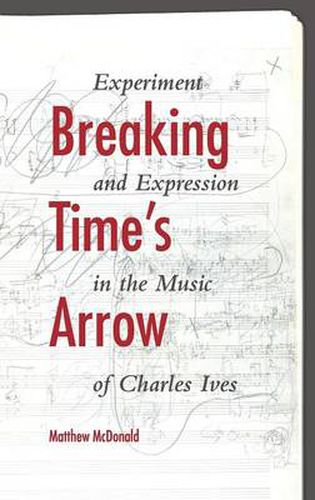Readings Newsletter
Become a Readings Member to make your shopping experience even easier.
Sign in or sign up for free!
You’re not far away from qualifying for FREE standard shipping within Australia
You’ve qualified for FREE standard shipping within Australia
The cart is loading…






This title is printed to order. This book may have been self-published. If so, we cannot guarantee the quality of the content. In the main most books will have gone through the editing process however some may not. We therefore suggest that you be aware of this before ordering this book. If in doubt check either the author or publisher’s details as we are unable to accept any returns unless they are faulty. Please contact us if you have any questions.
Charles Ives (1874-1954) moved traditional compositional practice in new directions by incorporating modern and innovative techniques with nostalgic borrowings of 19th century American popular music and Protestant hymns. Matthew McDonald argues that the influence of Emerson and Thoreau on Ives’s compositional style freed the composer from ordinary ideas of time and chronology, allowing him to recuperate the past as he reached for the musical unknown. McDonald links this concept of the multi-temporal in Ives’s works to Transcendentalist understandings of eternity. His approach to Ives opens new avenues for inquiry into the composer’s eclectic and complex style.
$9.00 standard shipping within Australia
FREE standard shipping within Australia for orders over $100.00
Express & International shipping calculated at checkout
This title is printed to order. This book may have been self-published. If so, we cannot guarantee the quality of the content. In the main most books will have gone through the editing process however some may not. We therefore suggest that you be aware of this before ordering this book. If in doubt check either the author or publisher’s details as we are unable to accept any returns unless they are faulty. Please contact us if you have any questions.
Charles Ives (1874-1954) moved traditional compositional practice in new directions by incorporating modern and innovative techniques with nostalgic borrowings of 19th century American popular music and Protestant hymns. Matthew McDonald argues that the influence of Emerson and Thoreau on Ives’s compositional style freed the composer from ordinary ideas of time and chronology, allowing him to recuperate the past as he reached for the musical unknown. McDonald links this concept of the multi-temporal in Ives’s works to Transcendentalist understandings of eternity. His approach to Ives opens new avenues for inquiry into the composer’s eclectic and complex style.